
Chronic Myeloid Leukemia
The latest news, research, and perspectives in chronic myeloid leukemia (CML). CML is caused by the BCR-ABL1 fusion gene, which is formed by a translocation between chromosomes 9 and 22 (the Philadelphia chromosome), that produces abnormal proteins leading to the development of leukemic cells.
Advertisement
Gaps in coordination and collaboration between primary care and oncology may impact long-term survival outcomes for patients.
Expert insights from a HemOnc Pulse Live! session offer a compelling look at where CML and MPN care is headed.
How have TKIs transformed CML survival and what’s next for treatment-free remission and deeper MPN responses?
Dr. Andorsky discusses CML dose escalation, treatment discontinuation, and unmet needs in leukemia care.
Asciminib shows safety and efficacy as a 2nd-line treatment in CML-CP without T315I, per interim phase 2 ASC2ESCALATE results
Steady access to Medicaid insurance helps ensure early recognition of symptoms, said senior author Xu Ji, PhD.
Advertisement
Experts debate frontline CLL therapy—time-limited combos vs long-term BTKi—and the role of MRD in treatment decisions.
ADP-heptose in the intestines of older individuals accelerates the expansion of pre-leukemic blood cells.
Studies have shown that oncologists are leaving the workforce at increasing rates in association with growing workloads.
Ryan Jacobs, MD discusses 2025 CLL treatment advances, including BTK/BCL-2 combos, resistance, and time-defined strategies.
LucyRx’s pharmacy network includes Northwestern Medicine Specialty Pharmacy, Dana Farber Cancer Institute, and more..
The ASCO Association Board Chair has written letters to the new heads of the CMS, FDA, and NIH.
The Community Oncology Alliance outlined solutions for Congress to address systemic challenges of the U.S. healthcare system.
The award provides early-career researchers at NCCN Member Institutions with $150,000 in funding to support cancer research.
Nicholas Freedman, DO, presented on symptom management and supportive care at the Tri-State Blood Cancer Conference.
CML clinical expert Nikolai Podoltsev, MD, PhD, especially addresses the capabilities of tyrosine kinase inhibitors.
More than 240 meetings were held with members of Congress as part of the ASCO 10th Annual Advocacy Summit.
Melody Smith, MD, MS, shares data on burnout in hematologist oncologists, why it occurs, and how to prevent it.
In a phase 1/2 trial the oral BCR-ABL1 TK inhibitor had effect even in patients with ponatinib-resistant disease.
ASC4FIRST Trial: Asciminib Shows Favorable Safety, Efficacy Versus Investigator-Selected TKIs in CML
Asciminib showed superior safety and efficacy compared with standard-of-care, second-generation, investigator-selected TKIs.
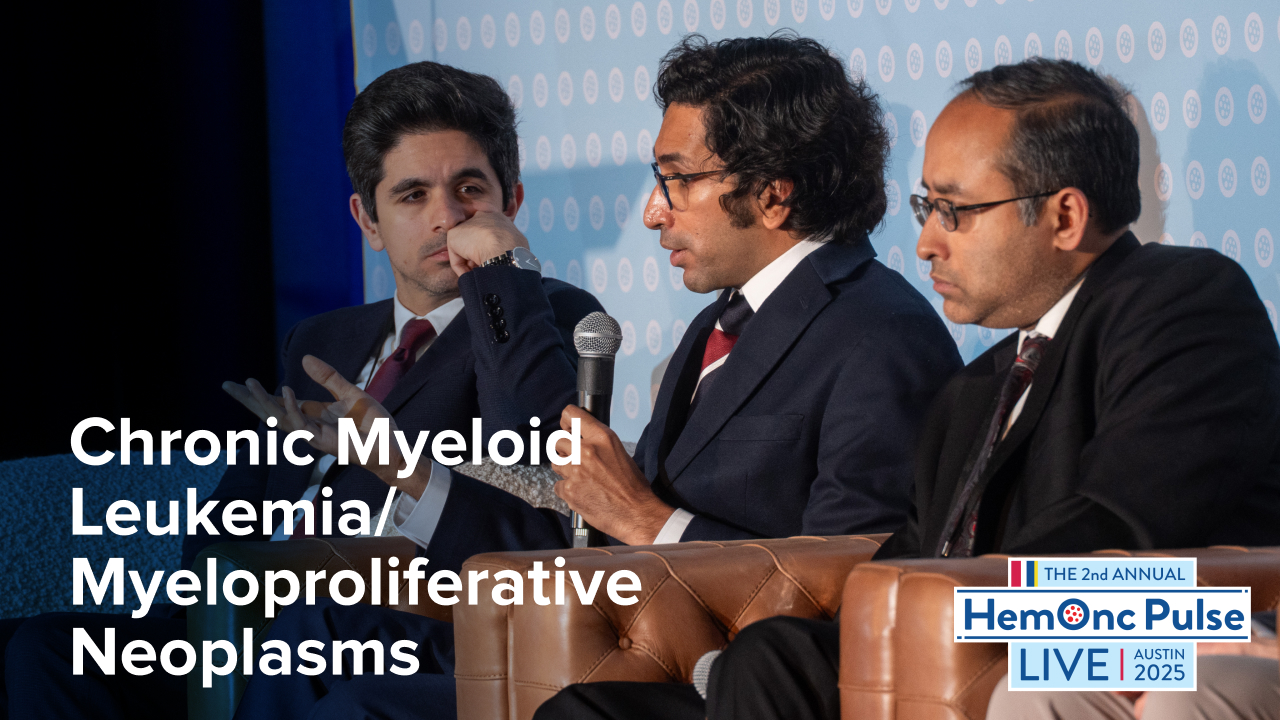
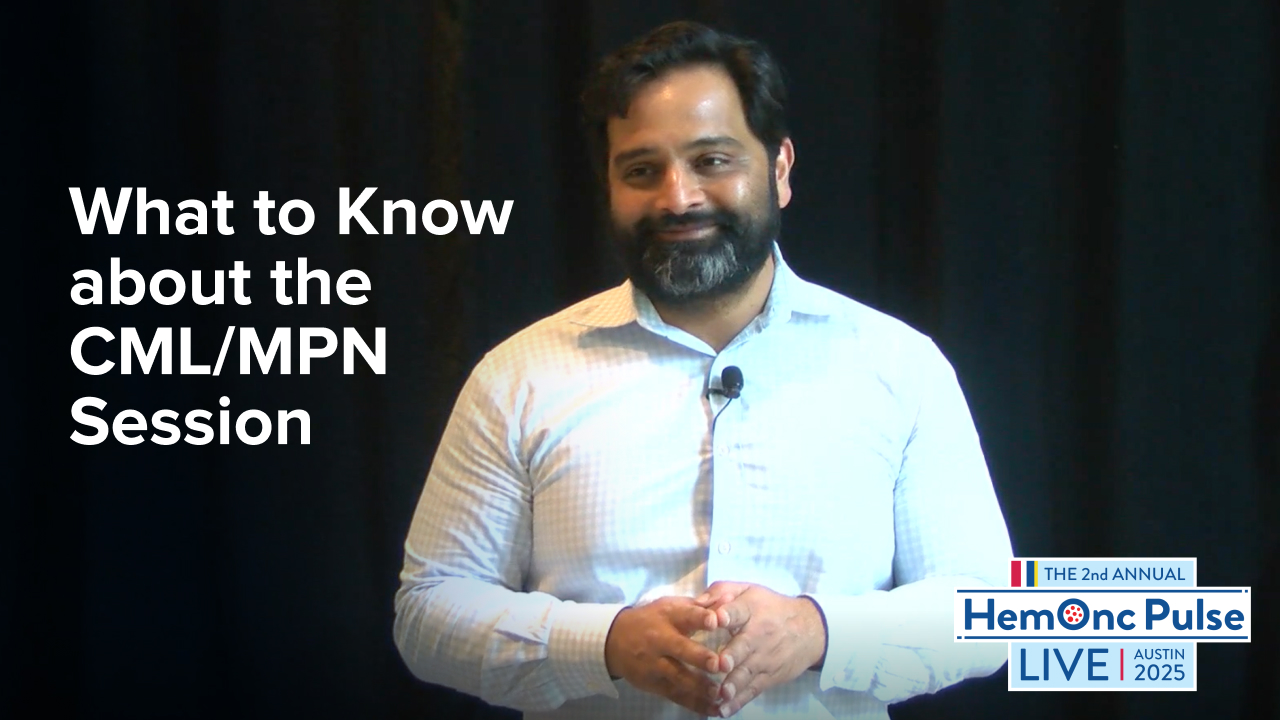
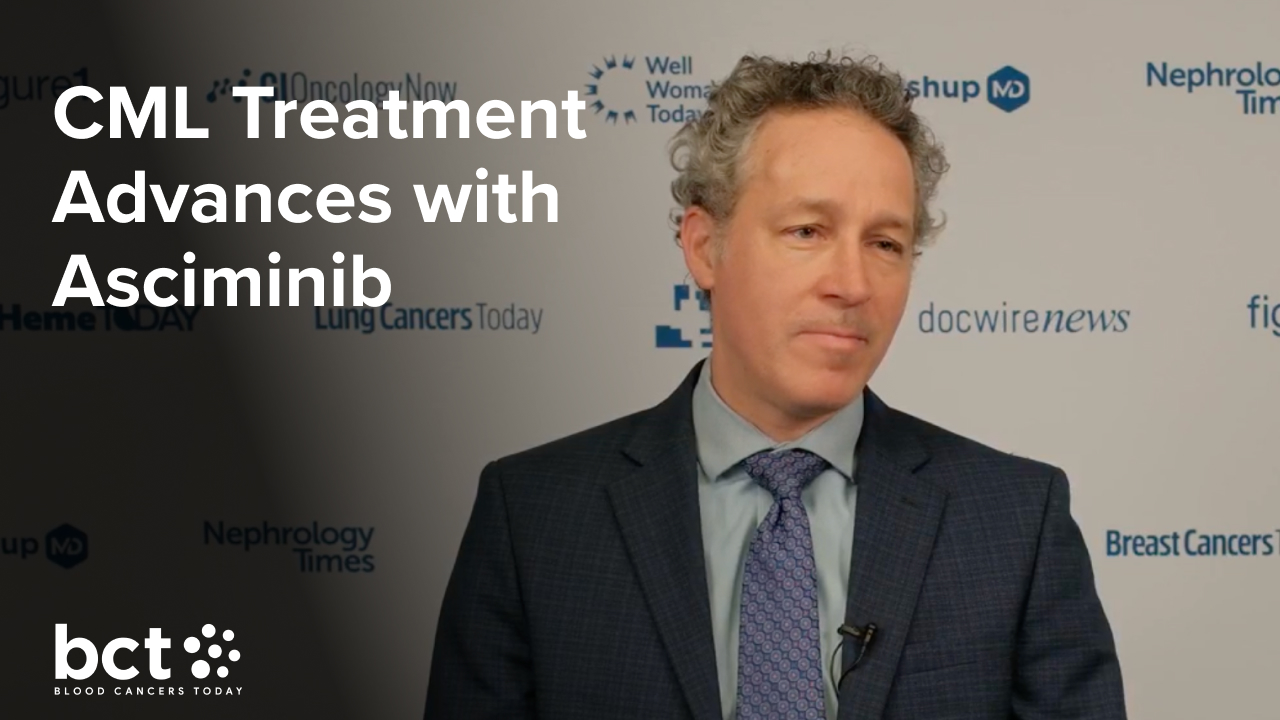
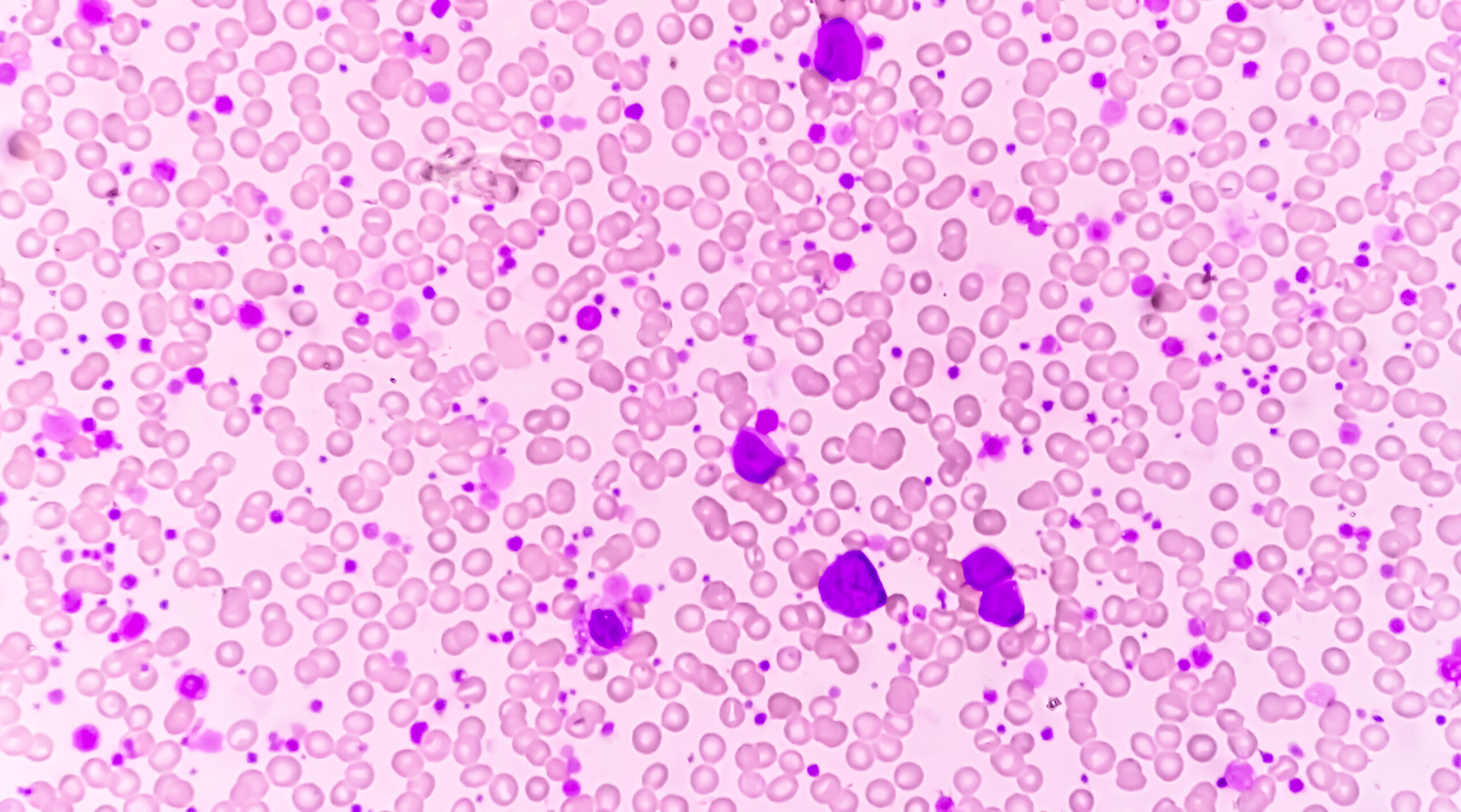

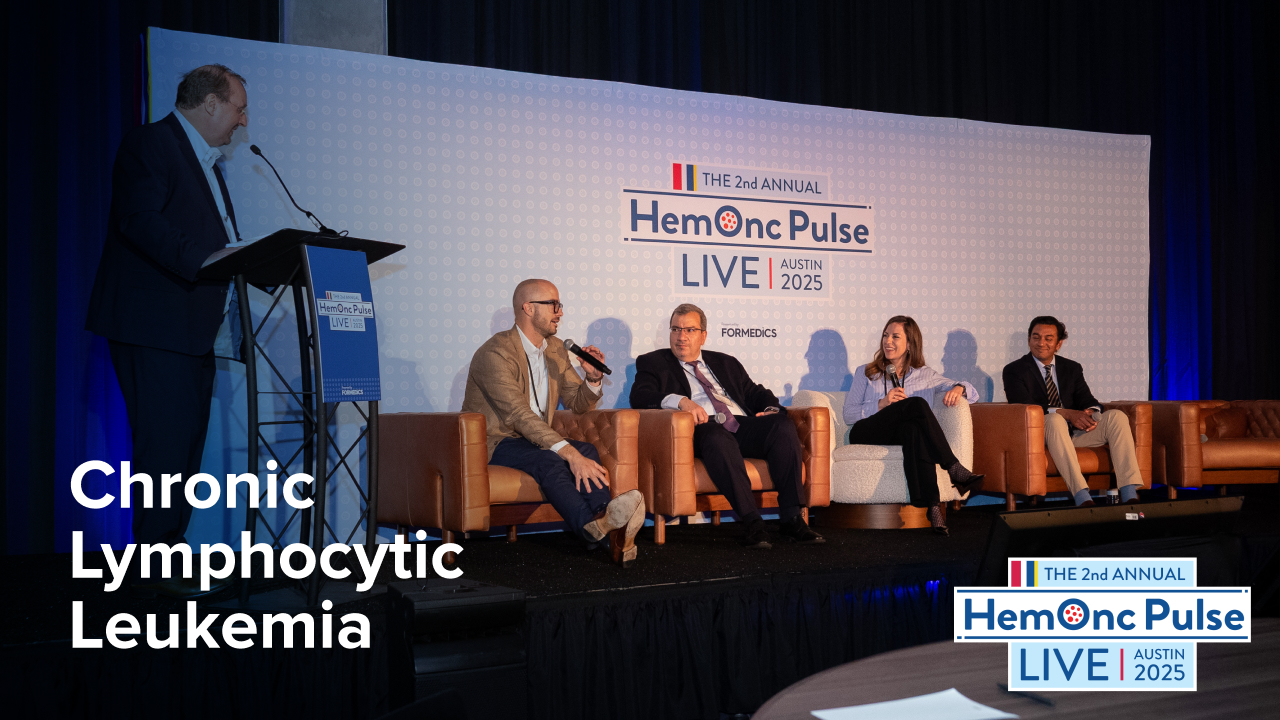


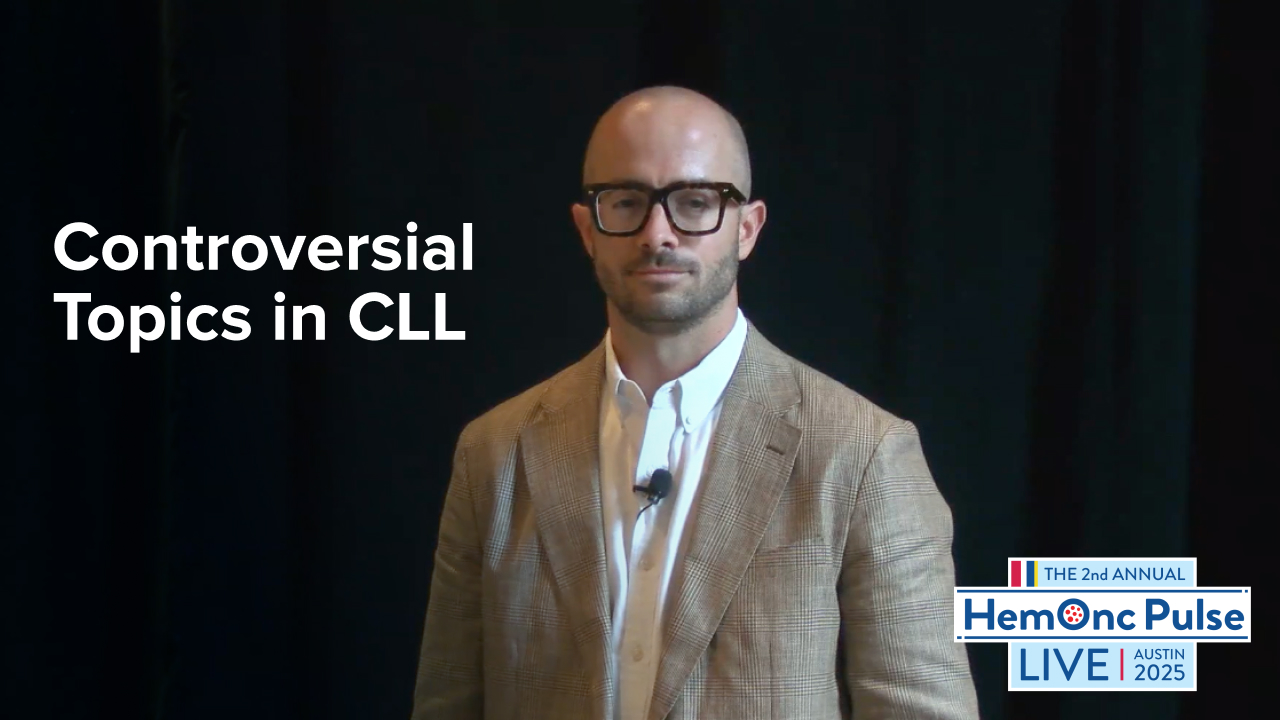





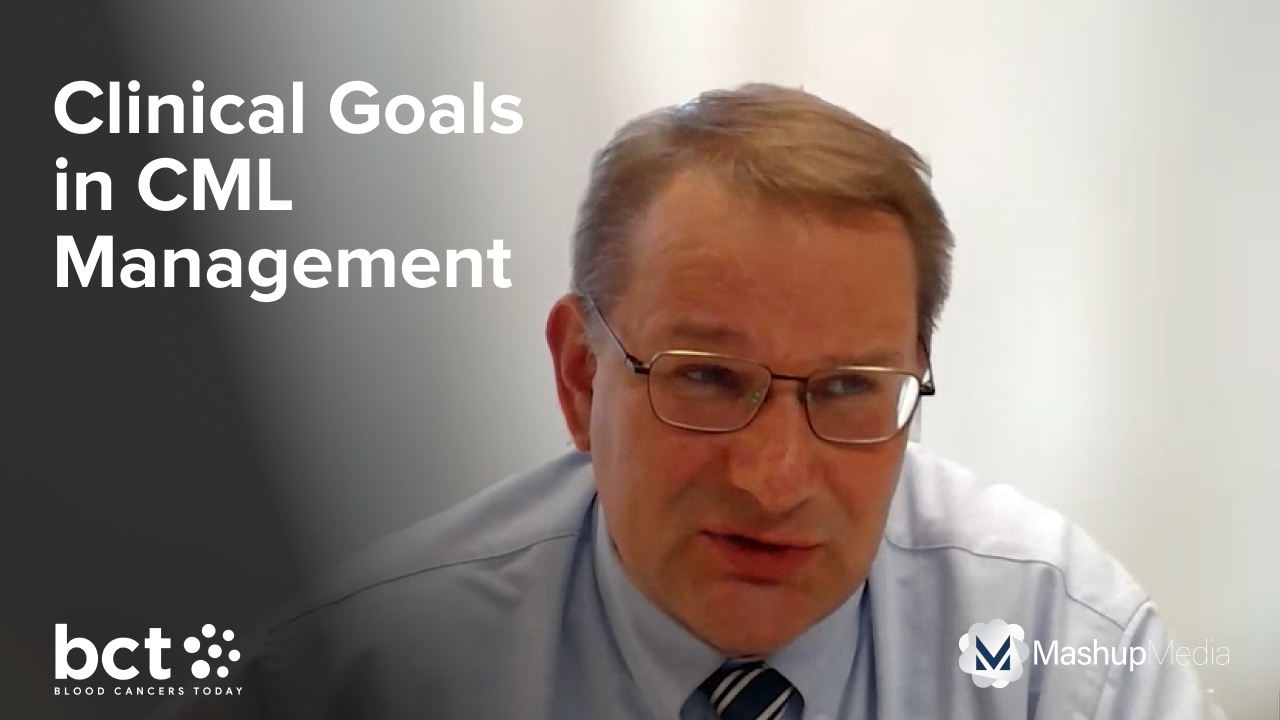




 © 2025 Mashup Media, LLC, a Formedics Property. All Rights Reserved.
© 2025 Mashup Media, LLC, a Formedics Property. All Rights Reserved.